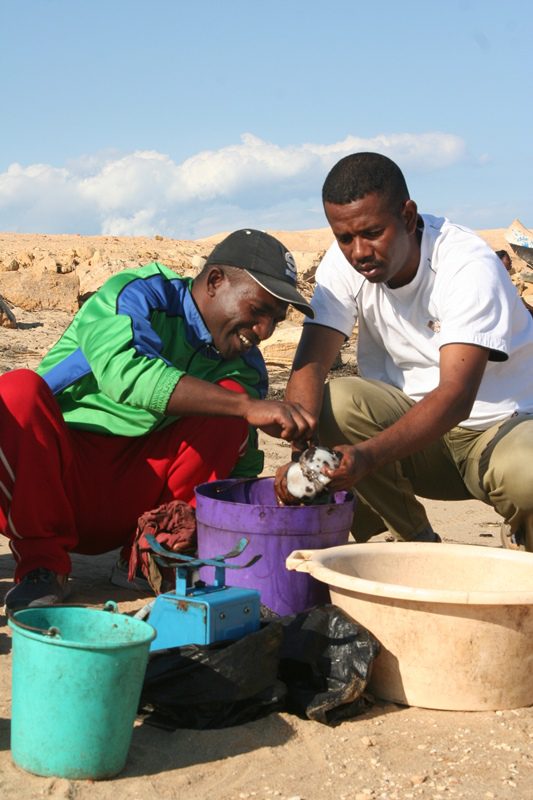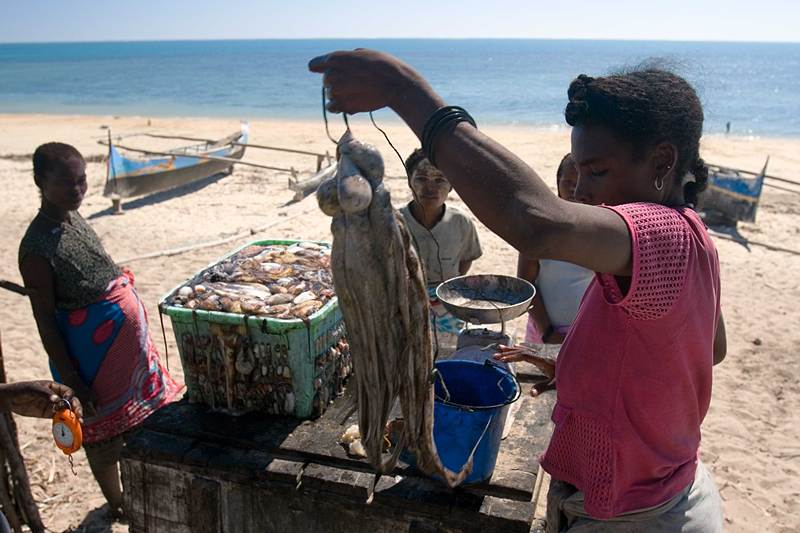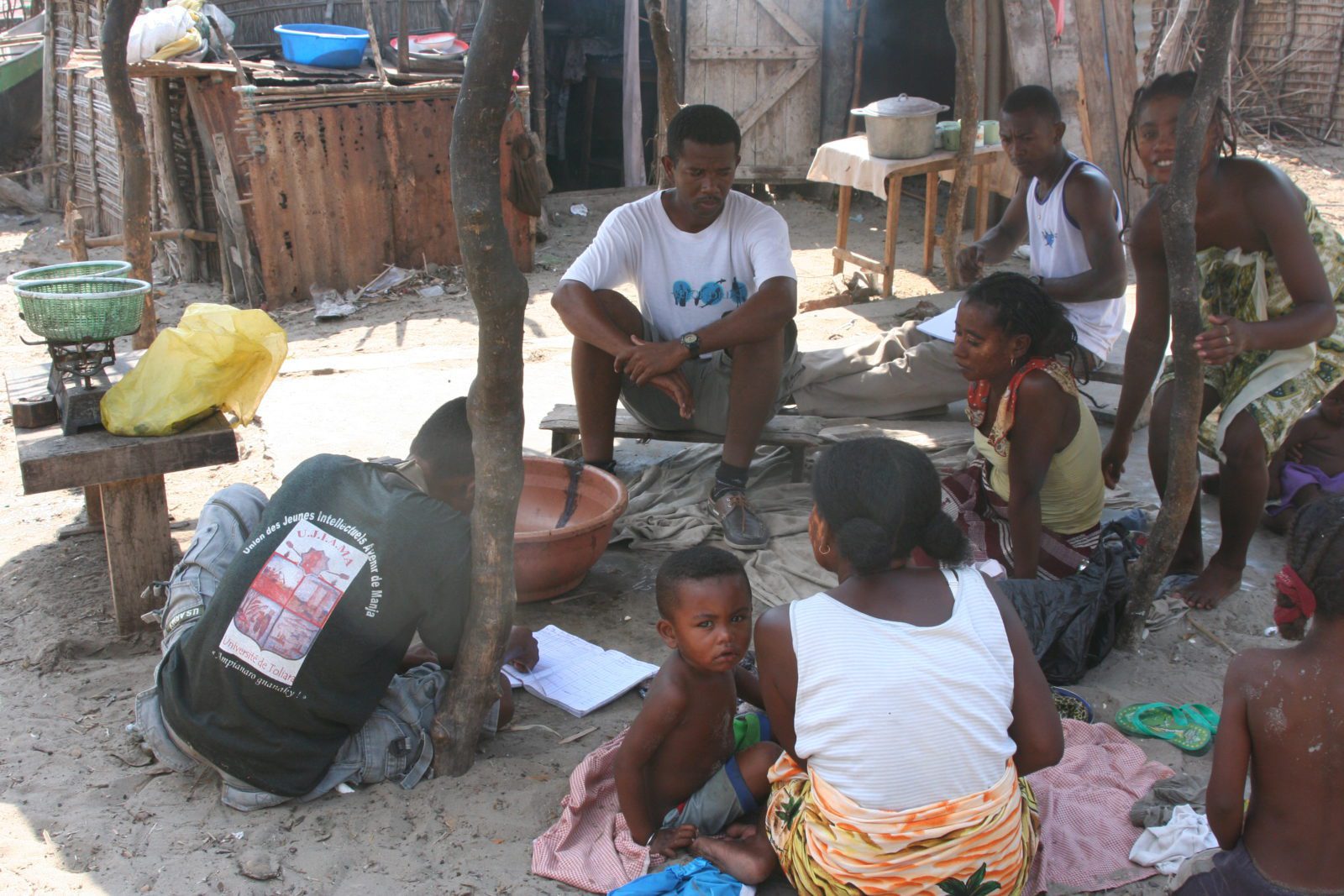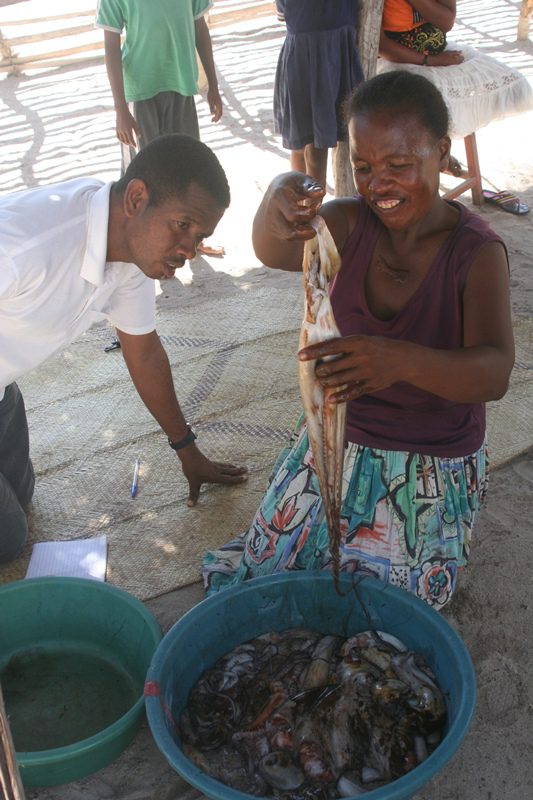By Daniel Raberinary, Community Conservation Coordinator, Madagascar
My name is Daniel Raberinary, I come from Majunga, Madagascar, and studied at the Marine Biology Institute at the University of Toliara (IHSM). I finished my masters degree in 2008, which was about octopus reproduction in the Andavadoaka region (southwest Madagascar), and now I am preparing my PhD to further analyse octopus reproduction and the state of the octopus stock in southwest Madagascar.
During my childhood, I loved the sea and seafood. Later, during university I recognised the importance of octopus for coastal communities and Madagascar in terms of revenue. Coincidentally, BV collaborates with the Marine Biology Institute (IHSM), where I studied, to set up resource management projects with communities. In 2005, BV asked for a student who could study octopus biology, which is an important species for everyone in the coastal zone. I was very interested, not only to study octopus biology, but also to practice what I learned and apply it to help the local communities, so I applied and was hired by BV. The principal objective of my study was to better understand the biology of octopus in order to properly manage octopus temporary closures – where communities close fishing grounds for two to three months at a time. During my initial time with BV, I led a study on the biology of octopus reproduction and life cycle, hoping to identify peaks in recruitment and spawning.
When I finished my masters degree in 2008, I stayed with BV as octopus reserve coordinator until 2010, helping communities to choose the period and the site for temporary closures. During that time I organised several meetings for the villages to explain the biology of octopus in relation to the conservation and management system.
BV started temporary closures in the village of Andavadoaka in 2004 and the surrounding villages the next year. Now, many villages in the southwest of Madagascar, and far away in the northeast, are learning from BV’ model and implementing temporary octopus closures.
Since 2011, I have continued my studies of octopus with IHSM, and with financial support from the government of Madagascar (Agence Malgache pour la Pêche et Acquacultue). From my research we aim to analyse the octopus fishery in the southwest of Madagascar by sampling fisher catches and collecting octopus gonad data. We also want to study the octopus habitat and have collected genetic samples for analysis at a university in the UK. I am especially focusing on gonad and genetic analysis for my PhD, which I am preparing at the IHSM in collaboration with the Ichthyology department of Rhodes University in South Africa.
Starting in March, I will start the histological (cellular) analysis of the collected gonad samples to compare and assess any variation in the maturity season of octopus between the southern and northern areas of the southwest region of Madagascar. We also want to confirm the results in those two areas with genetic analysis, which I will achieve by working closely with Rhodes University for support with data analysis. However, I still need more help from anyone who can give a hand to accomplish those two laboratory analyses, and I am learning new skills everyday!





